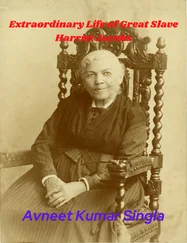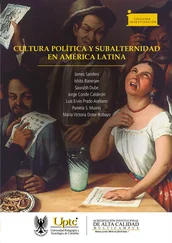Years had passed in the opera when the singing began in earnest. Nógrádi sat. This time, the orchestra came in together and the sound was staggering. They were one seamless mass: the orchestra and conductor and composer, the crowd and the cameras, the church and the city around them. The palpable spirit of Beethoven. Melanie felt it. The first part sung was the crying and moaning of the Daughter, now nine years old. Her big, unbound “peasant’s feet” made her a pariah. As the strings assembled into shifting vistas of harmony, Daughter — with the help of Grandmother — bound her own feet in secret. It was an incredibly demanding part for a singer, full of abrupt transitions from precise lyricism to howls of physical agony and emotional duress. From her seat, Melanie saw the green-black of the singer’s glittering gown, but little else.
Every musician was now on board and in precise and undistracted synchronization. The singers unfolded their story of pain and humiliation and violence wielded in the name of motherly love. Music surged in and out of tune. Harmonies arose and dissipated like clouds, then reformed themselves as hail that landed on the timpanis. The conductor smiled. His swaying grew more pronounced, more dance-like. Soon there were no longer notes on the page, only living music: music that consumed those black dots and rests like match heads and sent the ashes spewing all the way to the eaves, finally settling on the shoulders of prime ministers and diplomats and cameramen and Nanette somewhere firing away at Melanie through a zoom lens. A woman wailed, another sang solemnly, and yet another sat silent and motionless. Oboes and bassoons colored the very air they breathed and in which Melanie could now see her own breath. Horns blasted holes clear through the sound. The basses creaked and moaned like floorboards and the drums flagellated themselves mercilessly over her left shoulder to punctuate the entire event. Melanie watched her bow repeatedly stretch itself out from her body and recline again, hitting against the neck as if it were a talking drum. Her fingers danced heavily on the ridged strings, the bottom rim of her violin gouged into her collarbone, but she felt nothing. She possessed no “I” capable of feeling, and from that absence she was reborn into some kind of vision.
Melanie’s body remained anchored to her chair — she never completely lost touch with her physical presence, yet a different part of herself became unmoored. Some kind of dream-self came removed from her body and hovered near the stage. She looked at herself there— here —playing the violin, and then she floated over the heads of the crowd and ventured through the front doors of the church. She followed the path of the river north to Margit Bridge and went down to the island, an oasis of groves and fields and footpaths. She sped over the tops of the trees. Colors appeared exceptionally vivid, yet somehow misaligned, like she was wearing a pair of wine-red lenses. She arrived at an enormous oak, one she had never seen before, and recognized it somehow as her home. She belonged in it. She joined a flock of eagles and hawks amid the branches, which elsewhere also contained bats and owls and pelicans and parrots of every color. It was the woodpeckers, however, that got her attention. Hundreds of them — woodpeckers of every variety, tap-tapping an intricate tribal rhythm. It was mesmerizing. The immediate sense of comfort overwhelmed her, like the familiarity of her own clean bed after a long trip. The voice of her violin joined the choral din of birdsong and roused her from her trance. Looking down, she nearly screamed, shaken not by the height, though she sat far higher than the top of any natural tree, but by a series of human bodies: black men dangled from the branches on ropes. They had been lynched and left to feed the amassed birds. The tops of their heads bobbed and swung heavily. Their dying moans sounded like upright basses and antique cellos tuned to some ungodly foreign scale. They accused Melanie of complicity. She fled back to Batthyány Square as the string quartet finale approached, much too suddenly. She was going to be late for her entrance. Daughter was dying from a painful gangrenous infection.
She tuned her pegs down by another quarter tone as required — but she didn’t stop there. Instead, Melanie threw the strings wholly out of whack, even compared to the other atonal elements of Harkályi’s precious composition, and deviated wildly from the score. Zsuzsi stirred in her seat but didn’t risk looking over and losing her place; when her part ended and she stopped playing, the pronounced pocket of silence made Melanie’s violin that much louder, more jarring. It sounded beautiful, alive and natural in a way that she could only think of as sexual. The first violins in front of her began to rock in their seats, visibly distraught. The conductor eyed her entire section, trying to identify the offending party. More instruments grew hushed on cue, like confused voices silencing themselves. The singers retook their seats. Melanie ignored the score in front of her. The cello and viola died slowly until only the timpani and her own screeching violin remained, as out of tune as an upright, elementary-school piano. Disbelief passed through the orchestra, followed by something like anger — now directed fully at her — but her bow kept seesawing away. She looked for the timpanist but couldn’t see him. He struggled to keep up, to vamp along with Melanie and cover up the disaster in progress, but the combined effect soon breached that thin membrane separating music and noise. It sounded sirenlike, as natural as childbirth and just as messy. Even after the timpanist gave up, Melanie continued to play solo, exorcising herself of demons real and imagined. Filthy, infected sounds gushed from her body and every tone she dragged from her violin and ragged bow purged her of another sin until, at long last, she slid to one long, breathless glissando, then stopped.
The final altissimo squeak rose from the sounding board of her instrument, carried itself aloft, and ascended until it found itself trapped and muted among the plaster balusters of the ceiling. Calluses pulsated on her fingertips. The conductor eyed her in disbelief, in rage. He held his empty hand in front of his face as if shaking an invisible snow globe, then dropped it at his side before she was able to breathe again.
The church exploded. The audience’s ecstasy found expression in the whistling and clapping and stomping of leather soles. The crowd jumped to its feet. The prime minister kissed his wife, shook the hands of well-wishers in the row behind him, and applauded with gusto. Melanie didn’t dare to look at Harkályi. Her bow, a knot of horsehair tied to a stick, fell from her hand. The violinists in front of her turned around to stare without shame. The conductor took a jaunty bow and trotted off to the chancel. Beneath Melanie’s feet the heaters mercifully — miraculously — came back to life.
The cacophony of shouts and applause solidified into a steady rollicking beat until the conductor took the stage again. Motioning to Harkályi, he held out his cupped palms the way a beggar might ask for spare change. Melanie braced herself. Lajos Harkályi stood, aglow with the triumph spilling down on him from the very walls of the church. Nothing about his composure, his countenance, gave the slightest hint of disapproval, yet Melanie’s only concern involved collecting her things from those altar boys and getting the hell out before bumping into him. She didn’t care about that wormy conductor, but she couldn’t face Harkályi, not after the damage she had done to his opera. The prime minister hugged him and mugged for the cameras. The conductor pointed to the singers, asking them to stand. Bouquets fell at their feet. Erzsébet Holló received the loudest ovation and deservedly so. Her performance would make her a household name throughout Hungary and beyond.
Читать дальше












